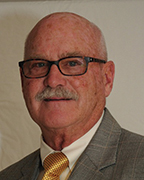How we reached September so fast is almost mind boggling, probably a good time to catch a breath and review past few months and look ahead to the remaining year. New England’s weather this winter was unusually warm therefore it was really good for some hotels (metropolitan and urban properties) and really bad for others (winter seasonal resorts throughout Maine, NH and VT.). The good news is that the summer was so busy for all New England hotels that even those whose revenues fell behind in the winter actually have caught up with 2015 and many moved ahead.
I continue to be very optimistic about the future of the hospitality industry throughout New England but there are some glaring problems seen throughout this year. One has been and continues to be the lack of qualified employees and the problem caused by staff shortages. There does not seem to be a market area where help wanted signs are not visible. There is such a lack of staffing for the hospitality industry that many owners are making drastic operating decisions. Obviously these staffing problems are hurting operations and in many cases revenue. Many restaurants are closing one or two days a week, sections of dining rooms are closed, and menus have had to be simplified. For hotels just ask the general manager how many beds he might have made this summer. One manager told me he hired a new employee at the exact wage he requested, worked for two weeks and then quit because his position required that he work too hard. For sure we need a more robust and easier H-2B visa program that brings more seasonal workers into the United States, but that still is not the solution. I actually believe we need to increase the amount of legal immigrants that are entering country as a source to help increase productivity and as one part of the solution. Also, there should be a greater number of students entering the vocational schools, and I am sure many other positive adjustments can be made by people who are a whole lot smarter than I am. The problem is our government is doing nothing to help but place more regulation on small business. Small business in the United States makes up for 80% of the business economy yet every added regulation makes it harder for the small business person to make a profit or even earn a living wage, especially difficult when taking the financial risks associated with being a small business owner.
There are many regulations that are affecting the business economy, health insurance requirements for sure, but there are two specific regulatory issues that have had a negative effect on the hotel business that really bother me. The first is the requirement to pay overtime to salaried employees that earn less than $44,000 per year. Seasonal resorts, hotels and restaurants have had to make big adjustments that in the end hurt those on salary the most. Instead of paying a salary many are looking to either cut back on time or add new staff. Most are planning to revert their salaried employees back to an hourly wage on December 1 when the regulation comes into effect. That means less hours in the off season and less hours in the summer/fall seasons and therefore probably less annual income, who has this regulation helped? Probably no one.
In Maine there is a referendum to increase the minimum wage to $12.00 per hour, but for tipped employees there will no longer be a tip credit. That means the operator is paying dining room servers $8.25 per hour more, a huge increase in payroll. This could easily result in many restaurant closings, or price increases, and a number of other significant problems for Maine’s restaurants which are vital to the Maine seasonal economy.
All these issues will require owners to be more diligent in their business planning, budgeting, and capital improvement programs. Customer satisfaction continues to be at the top of the list and clearly salaries and hourly wages will have to be commensurate with the responsibilities given. That will have to be heavily considered in any company’s growth model and business plan.
We are still very bullish on the hospitality industry future here in New England. For sure some markets may becoming overbuilt but there is still plenty of opportunity for new high quality mid-market franchised hotels and resorts. As I have written in many of my market updates the older hotels are becoming functionally obsolete at a more rapid pace, certainly as customer expectations continue to evolve toward a higher level of quality. Our company’s sales volume has again achieved a higher level in 2016 than 2015 which had been our best year ever. Important to note though that there are more difficulties on each transaction than those we encountered 10 or more years ago. It takes a lot of effort to move from the signing of the letter of intent to the closing, that is where we really earn our fees.
Best wishes for what looks to be a great fall season for the hospitality industry.
Earle Wason, CCIM, author of “Buying Smart in a Tough Economy” is president and owner of Wason Associates Hospitality Real Estate Brokerage Group.
Wason has brokered more than 150 hospitality transactions over the past 15 years and has fostered excellent relationships within the Northeast hotel industry. Wason has devoted a significant portion of his career to the commercial real estate industry and has held the CCIM designation since 1985.









